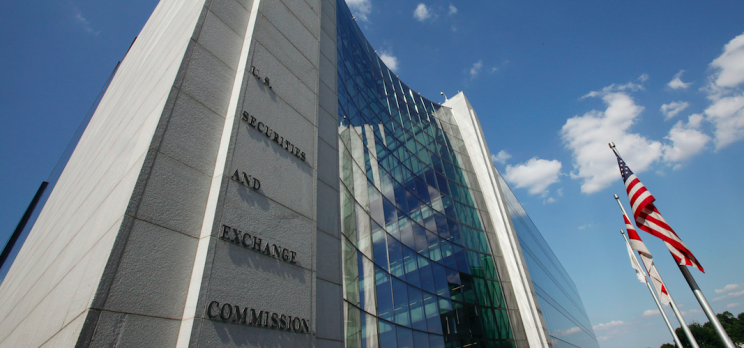Trump's SEC pick is a hotshot Wall St. lawyer and cybersecurity expert

President-elect Donald J. Trump nominated prominent Wall Street lawyer Jay Clayton as the next chairman of the Securities and Exchange Commission, the agency responsible for enforcing securities laws and proposing new rules.
“Jay Clayton is a highly talented expert on many aspects of financial and regulatory law, and he will ensure our financial institutions can thrive and create jobs while playing by the rules at the same time,” Trump said in a statement, adding, ”We need to undo many regulations which have stifled investment in American businesses, and restore oversight of the financial industry in a way that does not harm American workers.”
“If confirmed, we are going to work together with key stakeholders in the financial system to make sure we provide investors and our companies with the confidence to invest together in America. We will carefully monitor our financial sector, as we set policy that encourages American companies to do what they do best: create jobs,” Clayton said in a statement.
Advising Wall Street
A partner at Sullivan & Cromwell LLP — a prestigious law firm that represents many corporations and financial firms — Clayton has advised companies on numerous mergers-and-acquisitions, private equity transactions, and initial public offerings.
While at Sullivan & Cromwell, Clayton advised a number of high-profile deals during the height of the financial crisis. He advised Barclays in connection with its purchase of Lehman Brothers assets, Bear Sterns on its sale to JPMorgan Chase, and Goldman Sachs on its $5 billion investment it received from Warren Buffett, according to his bio.
In the wake of the crisis, he represented an unnamed “large financial institution” in connection with the settlement of mortgage-related securities claims with the Federal Housing Finance Agency. He also advised a “large financial institution” in connection with the settlement of mortgage-related claims with the Department of Justice, Housing and Urban Development, and the FHFA.
Other financial firms he’s worked with include Ally Financial, AMBAC, Oaktree Capital, Och-Ziff, and Moelis.
He also advised Alibaba (BABA) on its $25 billion IPO, one of the largest public offerings ever.
During his career, Clayton has received a number of accolades for being among the top lawyers in the business.
He graduated from the University of Pennsylvania with a bachelor’s in engineering in 1988. He earned his bachelor’s in economics from the University of Cambridge in 1990.
He received his JD from the University of Pennsylvania Law School in 1993. After law school, he served as a law clerk for Judge Marvin Katz in the Eastern District of Pennsylvania from 1993 until 1995. He was a lecturer for “M&A Through the Business Cycle” at this alma mater between 2009 and 2015.
A Cybersecurity Commission
One of the fascinating facets of Clayton’s career is his experience in cybersecurity. Clayton helps lead Sullivan & Cromwell’s cybersecurity practice, advising clients who are preparing for risks or responding to breaches.
In 2015, he co-authored an opinion piece for Knowledge@Wharton that called for the creation of a Cyber Threat Commission that would be similar to the model of the bipartisan 9/11 Commission. The idea would be for the commission to offer recommendations in advance of a crisis.
The authors described cybersecurity as a “black elephant,” which is a combination of a “black swan,” an unexpected event with huge consequences, and the classic “elephant in the room” saying.
Here’s an excerpt from their opinion piece on what the commission should do:
The U.S. President and Congress should appoint a 9-11-type Cyber Threat Commission. This Commission should:
Convene the best minds and intents from all sectors and political parties –divorced from self-interest and outside influences — with sufficient power and authority to move quickly and effectively.
Recruit beyond national borders — reaching the leading authorities from around the world.
Produce a report on the state of the digital union, including an assessment of the risks and a plan for addressing them in plain language that all can understand.
Follow the lead of the 9-11 Commission and communications experts in offering the narrative — not a typical government report — that all will want to read and follow.
Utilize social media to continue to communicate and gain feedback.
There doesn’t have to be a cyber attack to start working on this, the authors noted.
—
Julia La Roche is a finance reporter at Yahoo Finance.
Read more:
